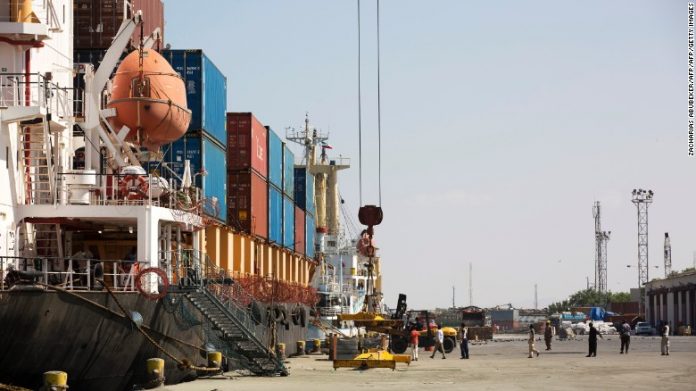
Ethiopia’s 30% goods to be shipped via Somaliland
After forming a tripartite port development agreement with the United Arab Emirates (UAE) and Ethiopia, the Government of Somaliland, which is yearning to gain an international recognition, has made arrangements to commence the construction of new port facilities at the Port of Berbera.
During a visit to the Port of Berbera – 154 kilometers out of the capital Hargeisa – Ali Ismail Mohamed, head of port operations with the UAE based DP World Group told Ethiopian journalists that the new tripartite port development project is set to take effect.
“The construction of the first phase begins in September and bids will be awarded to potential developers,” the operations head said.
As per the timeline, the port project is expected to be finalized by 2020. The port facility, which currently has the capacity to handle 150,000 container port traffic (TEU: 20-foot equivalent unit), is expected to expand into handling one million TEU of 20 and 40-foot mixed units.
The Somaliland Port Authority has already consolidated port management operations and let DP World acquire positions in the management and operational activities at the existing port facilities. The USD 442 million port, according to Mohamed and his team, will be developed in two phases. During the first phase of development, both Mohamed and Allan Sanchez – project operations manager with DP World at the Berbera Port – said that a 430 meter berth is expected to be constructed which will accommodate two vessels at any given time. The overall expansion project will bring about a total of 800 meter wide berth that can dock five ships at a time. The existing port facility accommodates five major vessels on a 650 meter long berth.
In case of Ethiopia’s involvement, it is hard to find out how the government is taking part in the development activities. Given its 19 percent stake at the port, Ethiopia looks at shipping some 30 percent of its import/export trades. Close to 10 percent of the total volume of shipment will be directed to Port Sudan. Some 95 percent of the country’s international trade currently passes through the Port of Djibouti.
The expansion project as commentators argue not only provides port services but creates additional milestone in the struggle for recognition as an independent nation.
However, the project is seen as a threat by the Somalia and Djiboutian authorities. Somalia opposed the project claiming it has violated its sovereignty while Djibouti didn’t like Berbera Port becoming a potential contender as it takes a considerable share of volume from what it currently enjoys.
According to the tripartite agreement, DP World holds on to a 51 percent share and Somaliland remains with 30 percent stake. Back in 2016, the initial deal was signed between UAE and Somaliland; that the former agreed to develop and manage the port with its own financial coffers. Somaliland will not be required to contribute in financial terms as the land and the seaport it availed is considered as an investment in kind.
When asked what it means to have a 19 percent stake at the Berbera Port? Mekonnen Abera, director general of the Ethiopian Maritime Authority said that such details will not be necessarily disclosed for the time being.
It is unclear whether Ethiopia’s willingness to provide electricity to Somaliland is part of the port project deal. Mekonnen commented on a road project Ethiopia built that stretches to the border of Somaliland and this should not be mixed with the port project agreement. He stressed that the road projects are separately considered as parts of trade routes and corridors for development.
As the expansion of the Berbera Port weighs in, the existing port has become instrumental in handling general and containerized cargos. Somaliland has already built a container strip close to the ship main yard named Wuchale. It was named after a historical place in Ethiopia. Some of the general cargos which the Berbera Port handles include 25,000 tons of food aids. According to port officials this volume is expected to climb to 40,000 tons this year.
SOURCE: THEREPORTERETHIOPIA







![New PM Starmer names first cabinet after landslide win British Prime Minister Keir Starmer looks on, at Number 10 Downing Street, following the results of the election, in London, UK, July 5, 2024 [Kevin Coombs/Reuters]](https://www.horndiplomat.com/wp-content/uploads/2024/07/2024-07-05T115520Z_52034812_RC2ZO8AP0G9J_RTRMADP_3_BRITAIN-ELECTION-1720202222-100x70.webp)





